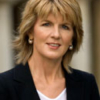Julie Bishop

Julie Bishop
Julie Isabel Bishopis an Australian politician, serving as the Minister for Foreign Affairs since 2013, and the Deputy Leader of the Liberal Party since 2007. Bishop grew up in the Adelaide Hills and was educated at the St Peter's Collegiate Girls' School, later attending the University of Adelaide. Prior to entering politics, she was Managing Partner of top-tier Australian law firm, Clayton Utz...
NationalityAustralian
ProfessionPolitician
Date of Birth17 July 1956
CountryAustralia
The concern is the Government is not coming clean and informing the Australian public of the assumptions that they have made to give rise to a $10.4 billion package.
This approach reflects the fact that ageing issues will affect every member of the national community, old and young alike.
It is time for Government and providers, educators, unions, and health professionals to all work together to ensure that we attract and retain the best possible people in aged care, to ensure that the sector has a vibrant, interesting, rewarding career path so that it becomes a career of choice for people.
Isn't that crazy? It sounded fine a couple of months ago when I signed up for all this. I just didn't think it looked like that big a deal, to run a few miles after I got done with the marathon.
And I believe that the best buy in public health today must be a combination of regular physical exercise and a healthy diet.
The message from the United States and Europe is that governments must live within their means.
Today it has been estimated that the average 70 year old has four chronic conditions and consumes an average of 35 PBS scripts per year for those conditions.
The strongest initiative that government can take to ensure Australia is prepared for population ageing, is to maintain a strong economy, and a secure nation.
Dementia is not exclusively a problem of the developed world.
The Gillard government must give up its addiction to wasteful spending borrowing and taxing.
Well they're very, very genuine concerns at present as to the status of the 800 people who are to be sent by Australia to Malaysia. There's concern about the status of asylum seekers in Malaysia generally, but there's concern about the status of the 800 to be sent.
When the Australian Government looked at how to meet the challenges, and the opportunities, presented by our ageing population, it saw that an all-encompassing approach was a prerequisite.
Greater public recognition will also be critical in encouraging prevention and early intervention, and more generally in building public support to meet the challenges of dementia.
At the last census it indicated that about 22 per cent of Australians were born overseas.